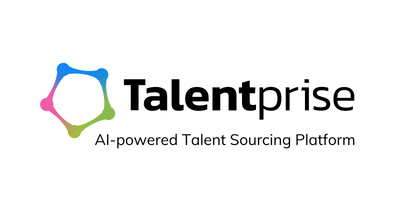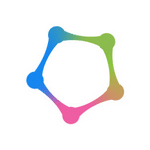The human resource technology market was worth $23.32 billion in 2021, and in less than a decade from now, it could reach $38.36 billion.
As such, the human resources sector is quickly working to adopt these new technologies. This is most evident in how the training of HR professionals has changed, especially at a higher education level. Modern human resource management training programs focus on teaching the current issues, trends, and technology within the field of human resources. This includes recruitment and talent management, human capital management systems and technology, using technology for hiring a diverse workforce, risk management, and performance appraisals. Since a business’s success hinges on hiring and retaining high-quality talent, having dedicated HR professionals who can implement and maximize relevant software programs are invaluable in the new world of working.
They can optimize hiring systems and processes, so your organization won’t miss out on top candidates. In particular, tech professionals with specialized skills are highly sought after in the tech industry, which is why your recruitment process needs to be cut above the rest. Here are a few ways you and your HR department can use technology to acquire the best tech talent for your organization:
Human Resource Technology: AI Talent Intelligence Platforms

Job descriptions may not fully capture the complexity or scope of the role, nor the specific requirements an employee needs to carry out their responsibilities properly. A lack of in-depth analysis can also pose a problem when looking for tech talent; if a candidate is put into an ill-fitting role that doesn’t maximize their skills, they may be unable to handle the job’s demands. Using AI talent intelligence platforms to evaluate an applicant’s specific background, capabilities, and experiences to match them to a better role can help new employees perform much more efficiently and contribute more to your organization.
Candidates intending to work in the tech field often have a wide array of skills and diverse backgrounds, making it tricky to place them in a job that fully uses those things. For example, a potential hire may be skilled in managing cloud-based technology but lack cybersecurity knowledge to protect your data storage systems. AI can help you take apart these various capabilities and put applicants in the best positions. This data can also allow you to explore potential tech job opportunities to fill any gaps in your tech department.
Gamifying Talent Acquisition
Searching for the best candidate for any job can be challenging, even more so when looking for tech talents. After all, you’ll need to find a candidate with specific skills and comprehensive knowledge to keep up with the fast-changing field. A recruitment trend that has made talent search more enjoyable is using games for skills assessment. Gamifying your recruitment procedures can help you reach a broader scope of candidates and increase the talent pool. It also removes the need to sift through many CVs and applications —employers can pick from the top scorers.
Companies can also customize the gaming experience to easily predict if a potential employee’s skill set culturally fits the organization. Gamified recruitment can also strengthen branding and engagement and will be attractive to candidates looking to be part of a company that offers innovative solutions. Gamified assessments act similarly to AI talent intelligence platforms but give you a more creative and unique edge so you stand out from the competition.
Predictive Hiring
Much of the traditional recruitment process is based on an interview with the applicant for the position, and recruiters often use their intuition to decide whether or not to hire someone. However, this can tinge your hiring process with bias and assumptions, leading to a less-skilled workforce with little diversity. Resumes and interviews often provide a one-dimensional glance into a candidate’s abilities, and employers can suffer a big setback if the person they hired can’t meet all the job responsibilities. Without a streamlined process for evaluating applicants, organizations risk losing time and resources if they can’t hire the right people the first time around.
Predictive hiring may become essential to the recruitment process in the near future for that reason. This method works by using software to analyze the candidate’s abilities and characteristics, then use the data to make predictions about their performance in the job. This also makes recruitment faster and more streamlined, keeping you ahead of the rest. Predictive hiring can scope out the talent pool and lead you to the right people with less ambiguity or doubt.
As the working world continues to evolve, HR professionals need to prioritize using technology to hire the best talents for high-demand positions. If you’re looking to learn more about using AI and tech in your talent acquisition procedures, reach out to us at Talentprise to find out how you can get connected with the best-fit candidates for your business.
About Talentprise
Talentprise is a skill-driven AI recruiting platform for employers to find top-fit candidates, while helping job seekers land jobs they deserve.

Related:

Editorial Team
Our team is fueled by a passion for crafting valuable content that enriches the experiences of our users, customers, and visitors. We meticulously select meaningful and unbiased topics ranging from tips and guides to challenges and the latest in technology, trends, and job market insights. All curated with care and affection!
Hire Smarter. Faster. No Strings Attached.
Start your free trial, no credit card needed, and experience AI-powered talent sourcing that outperforms job boards and LinkedIn. Describe the role, or paste a job description, and instantly match your vacant role with the right candidates: no filters, Boolean, or training required.




